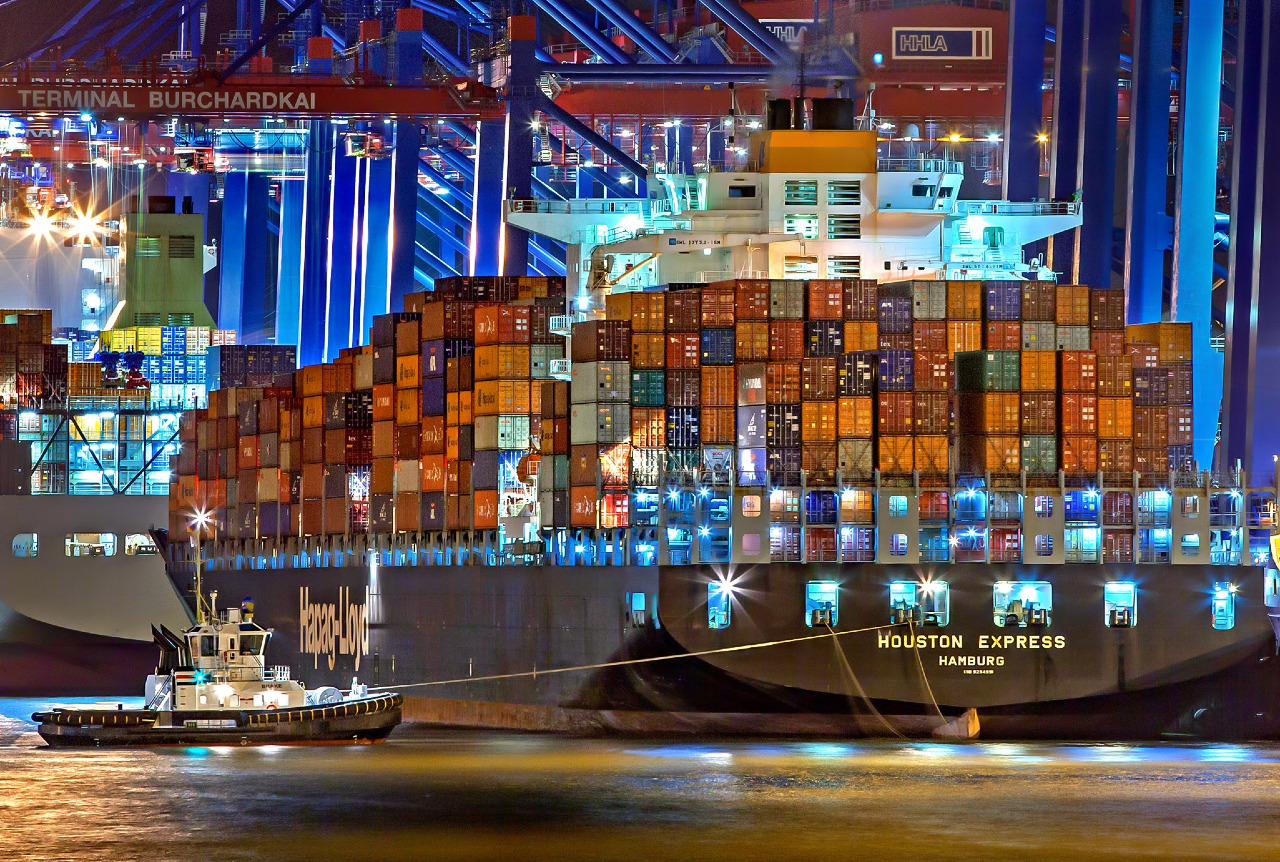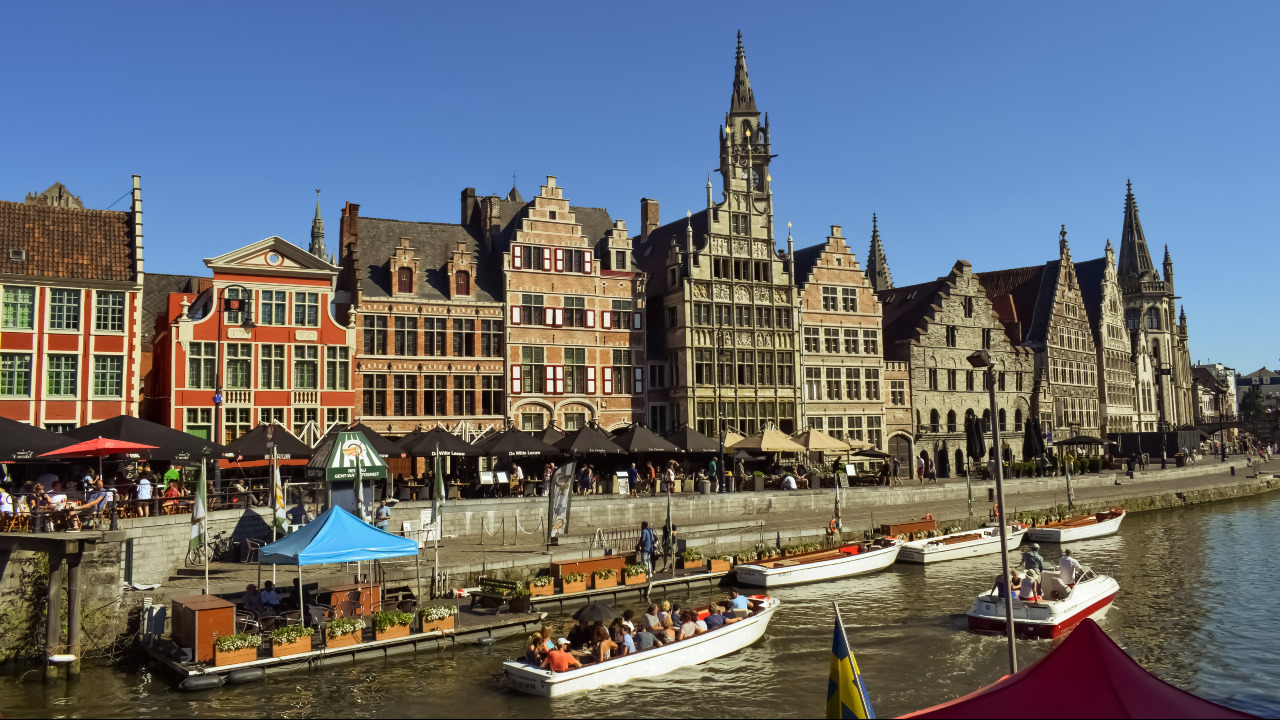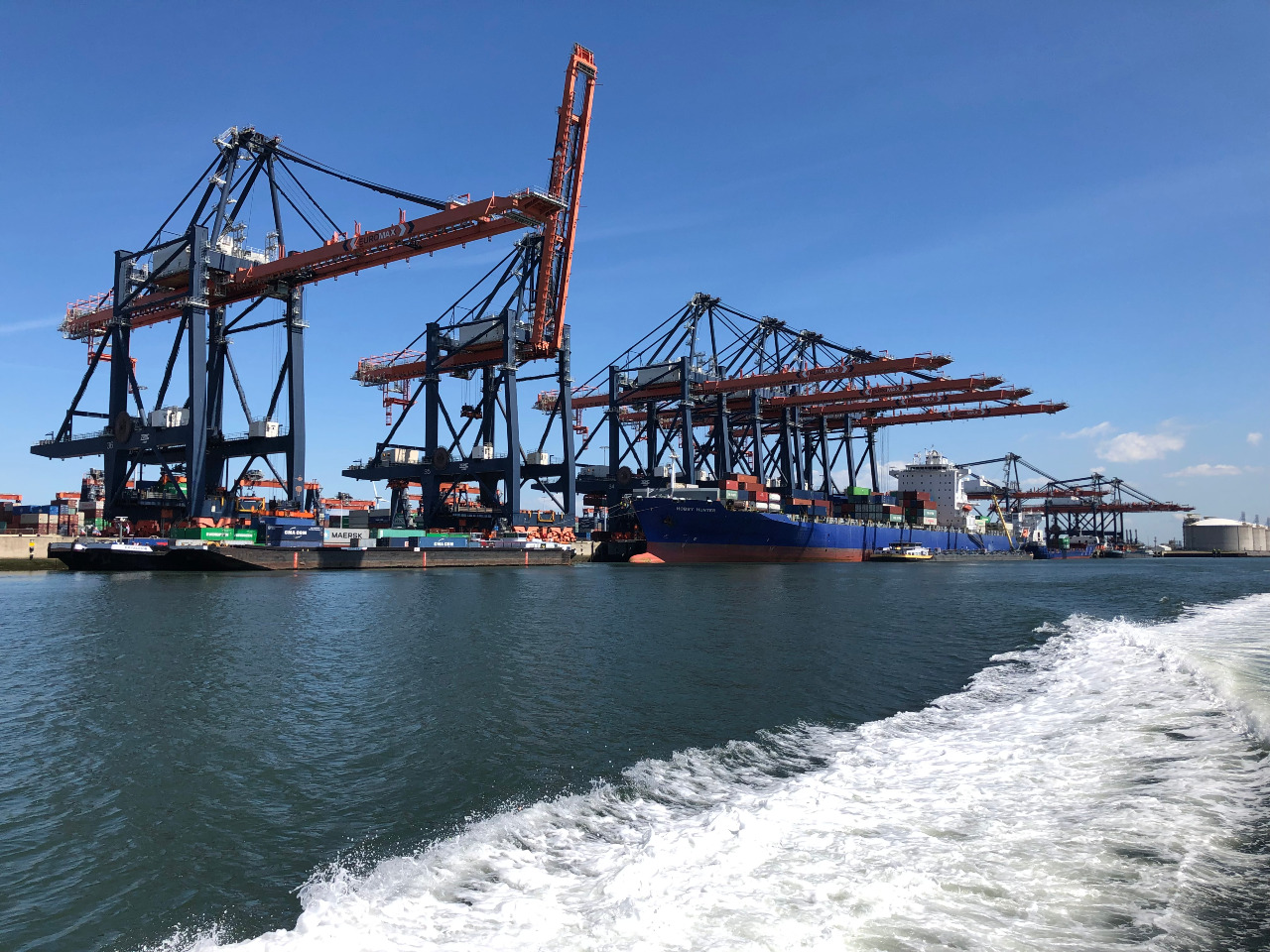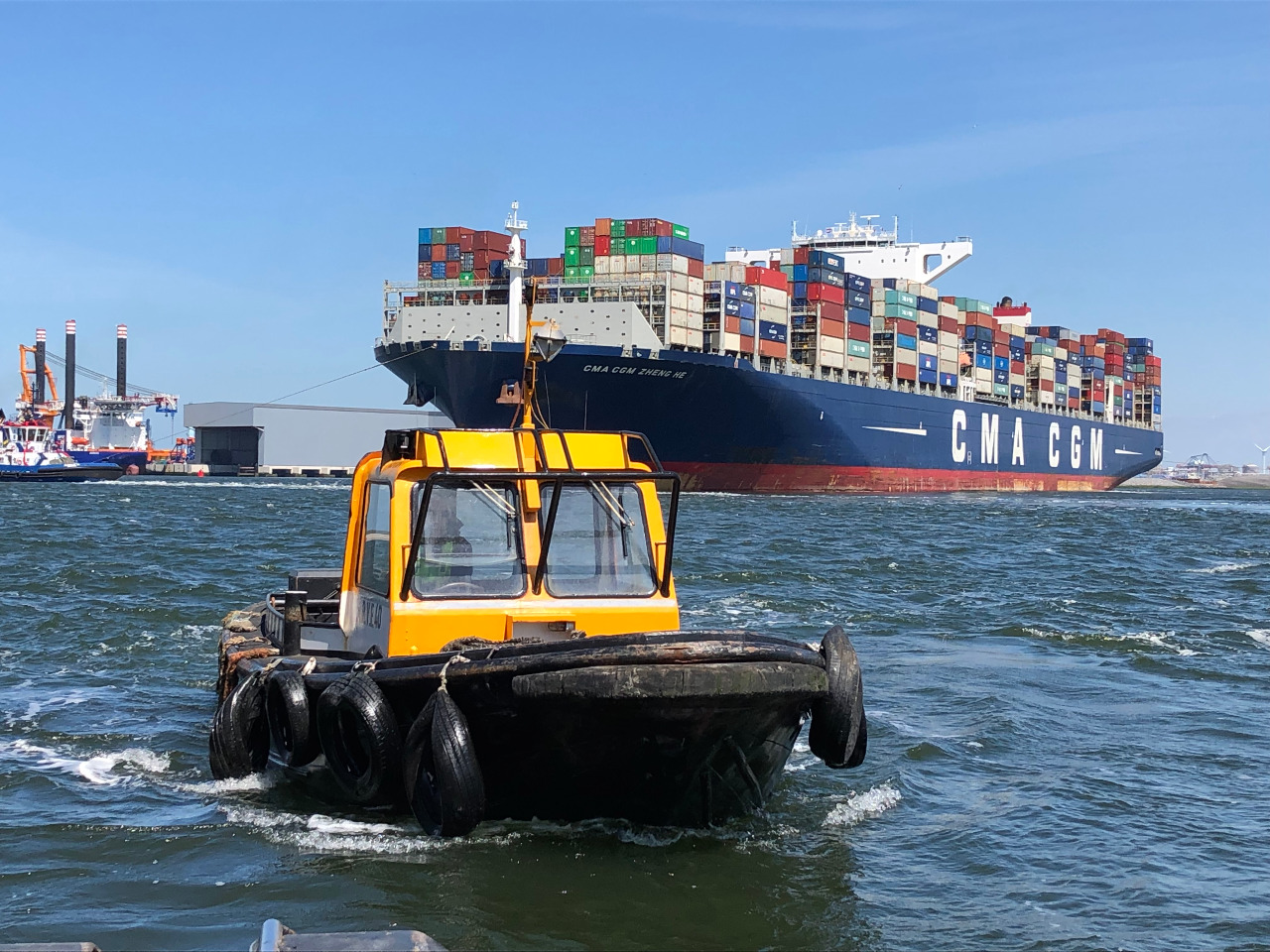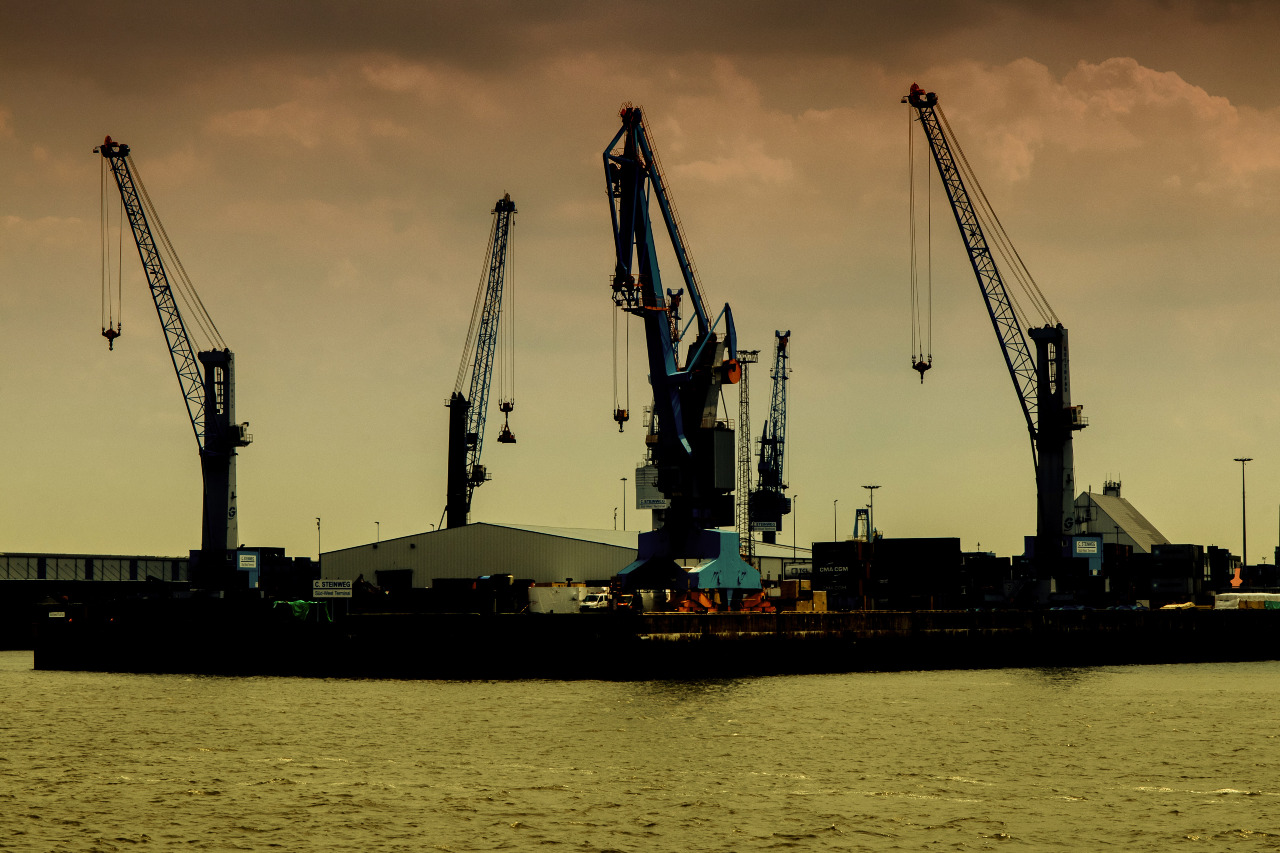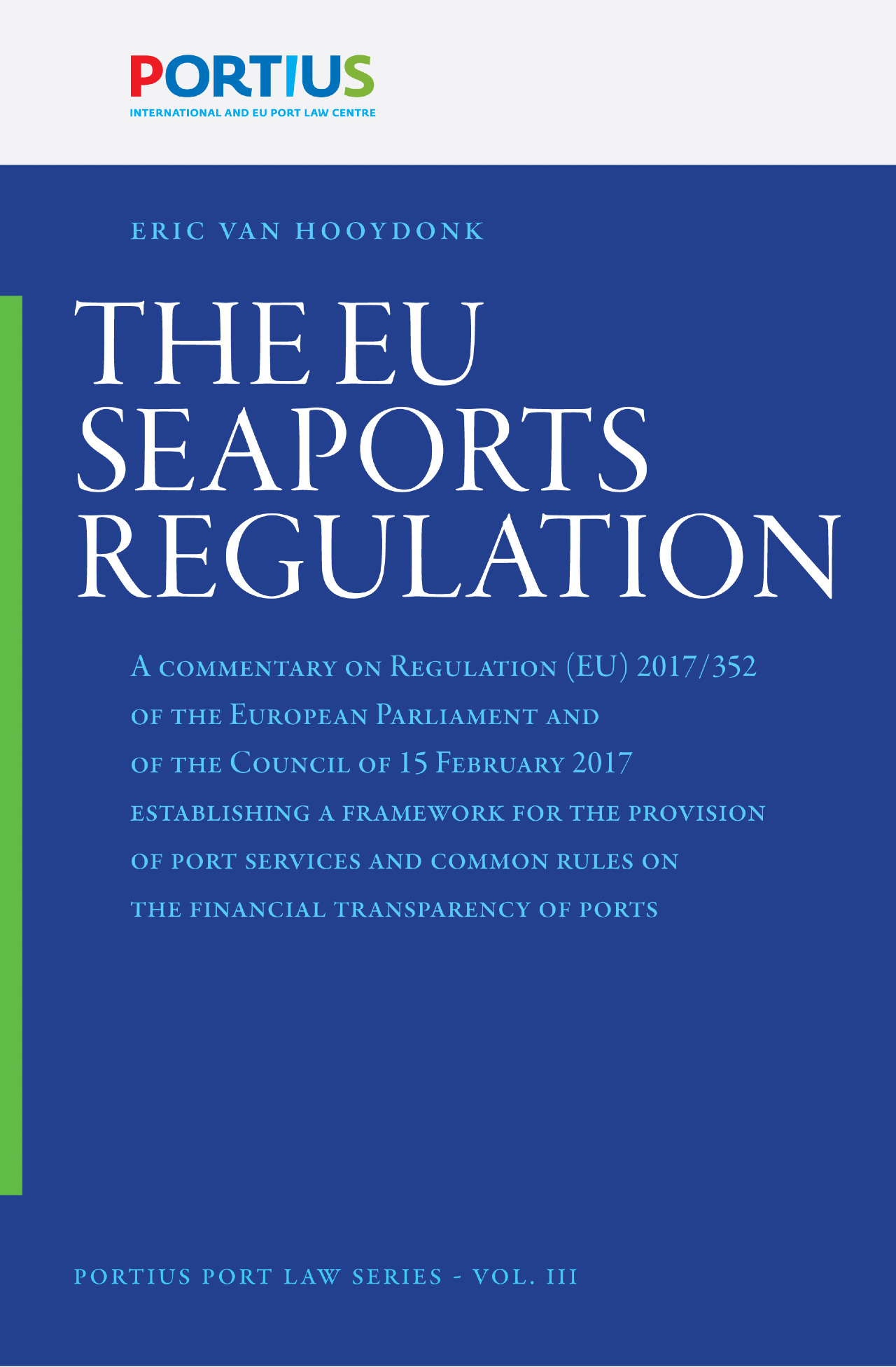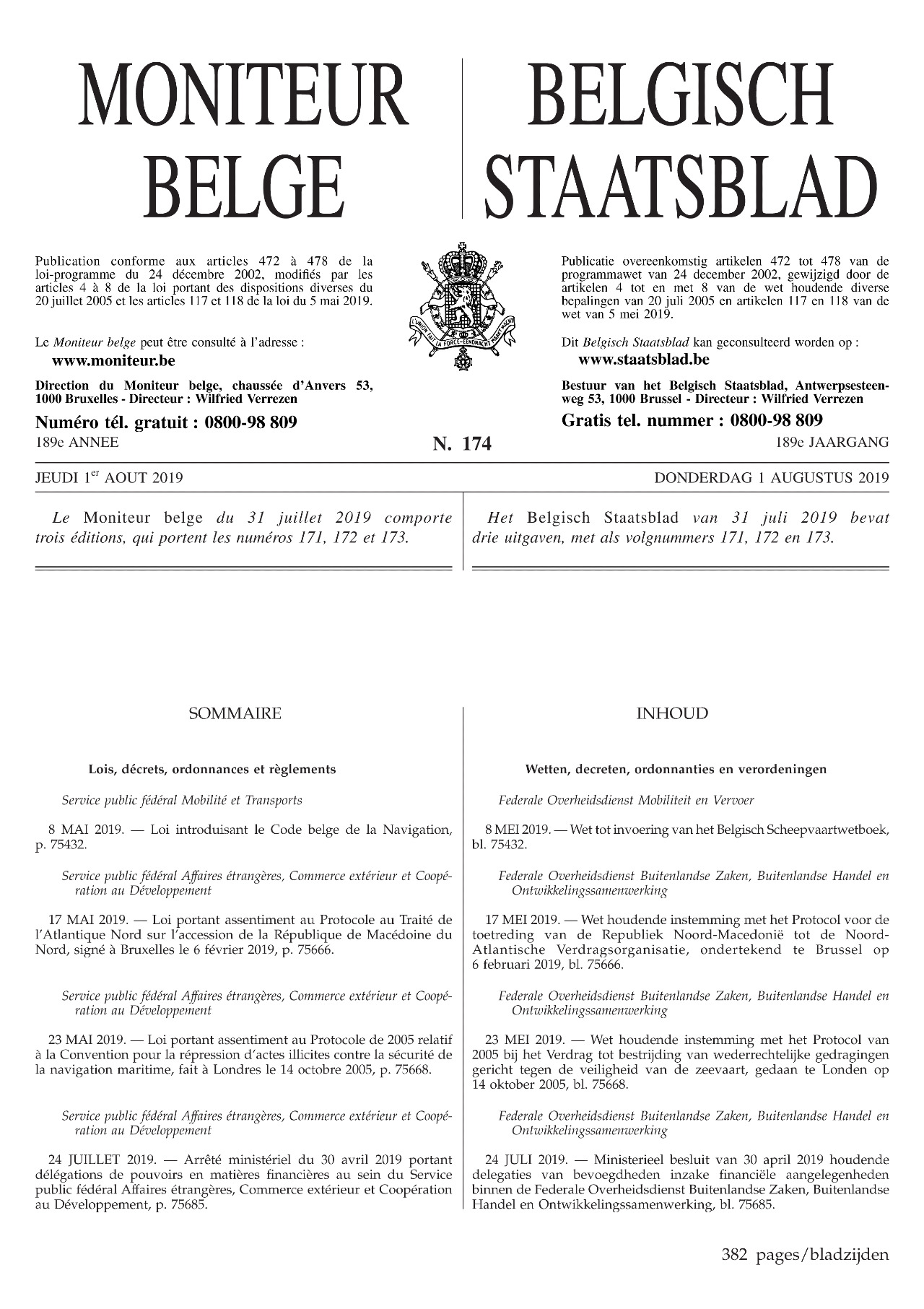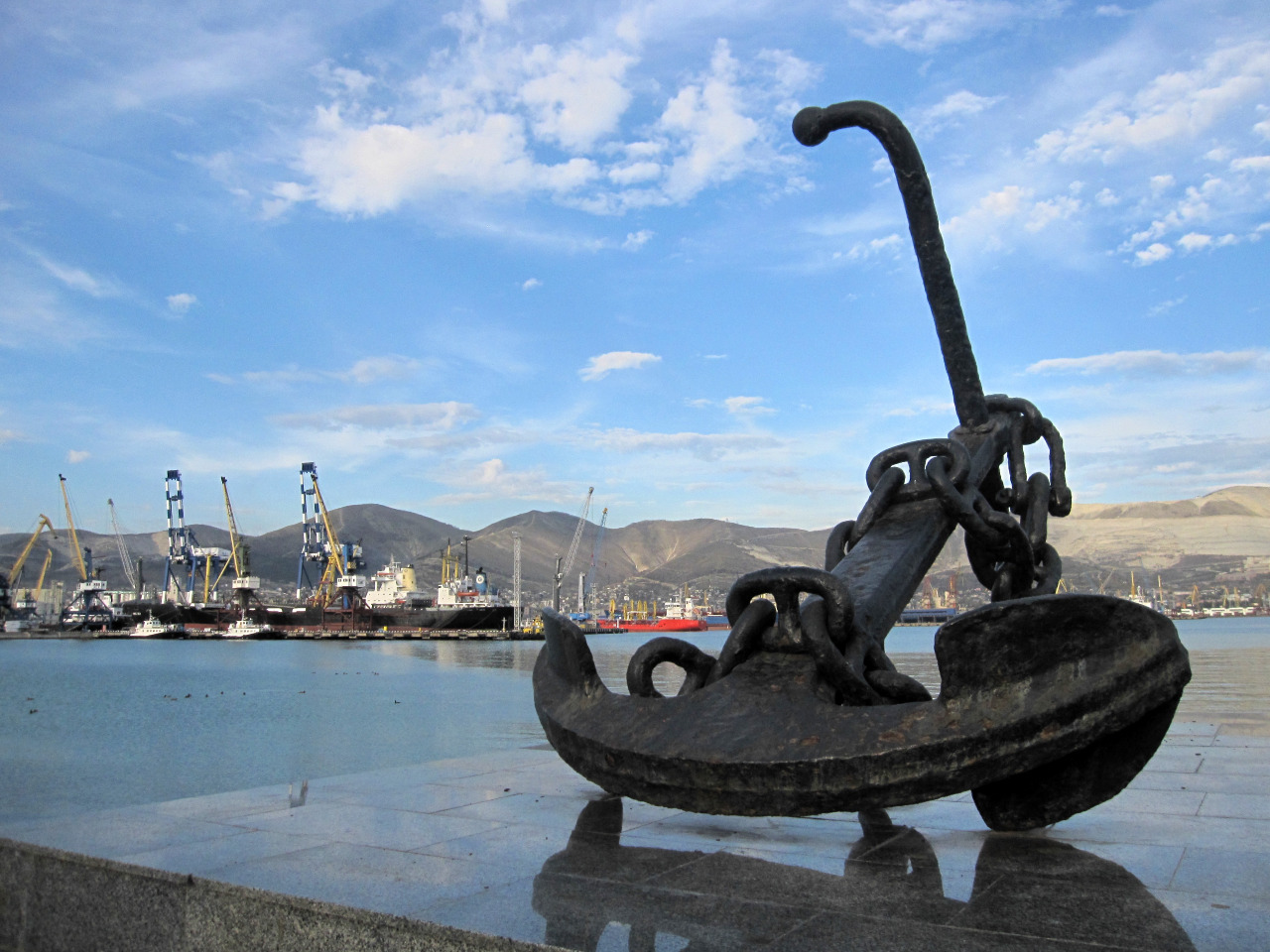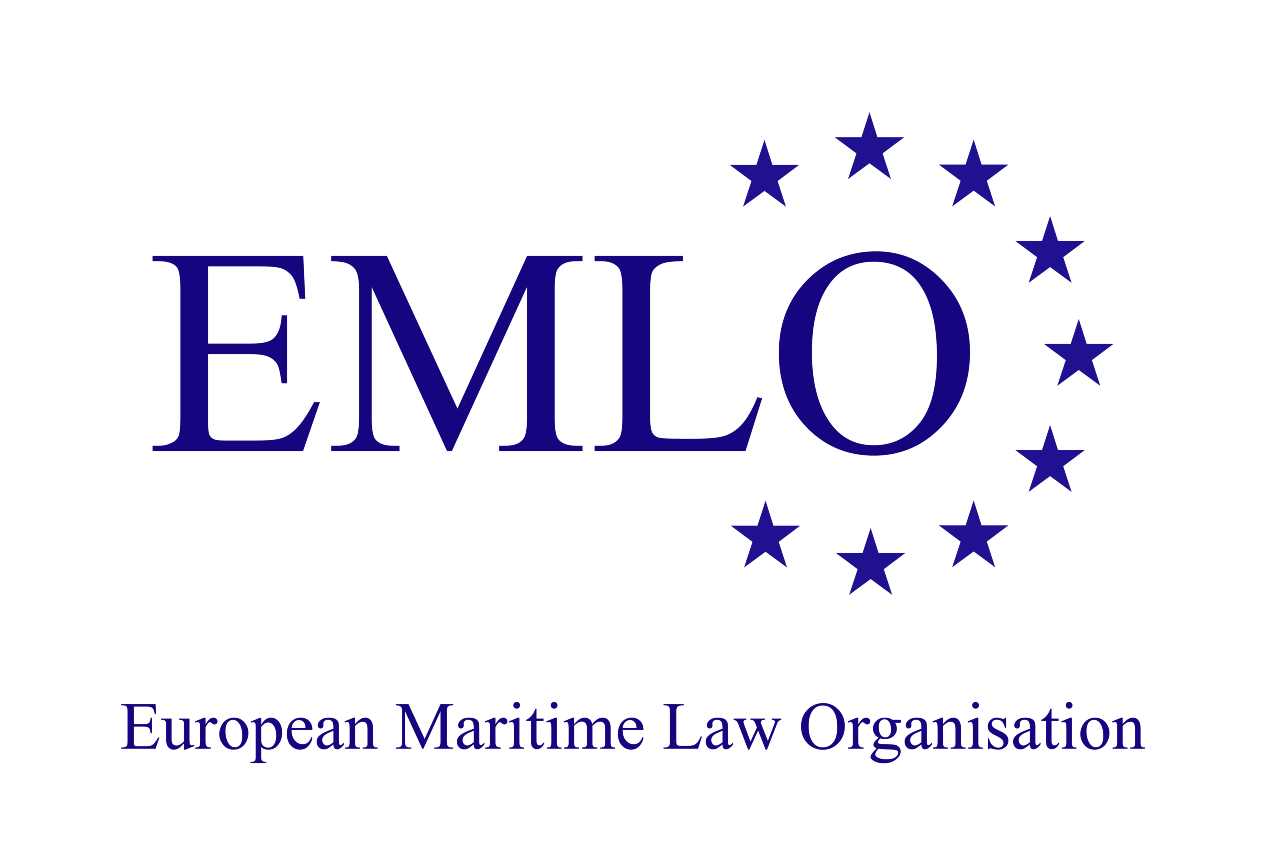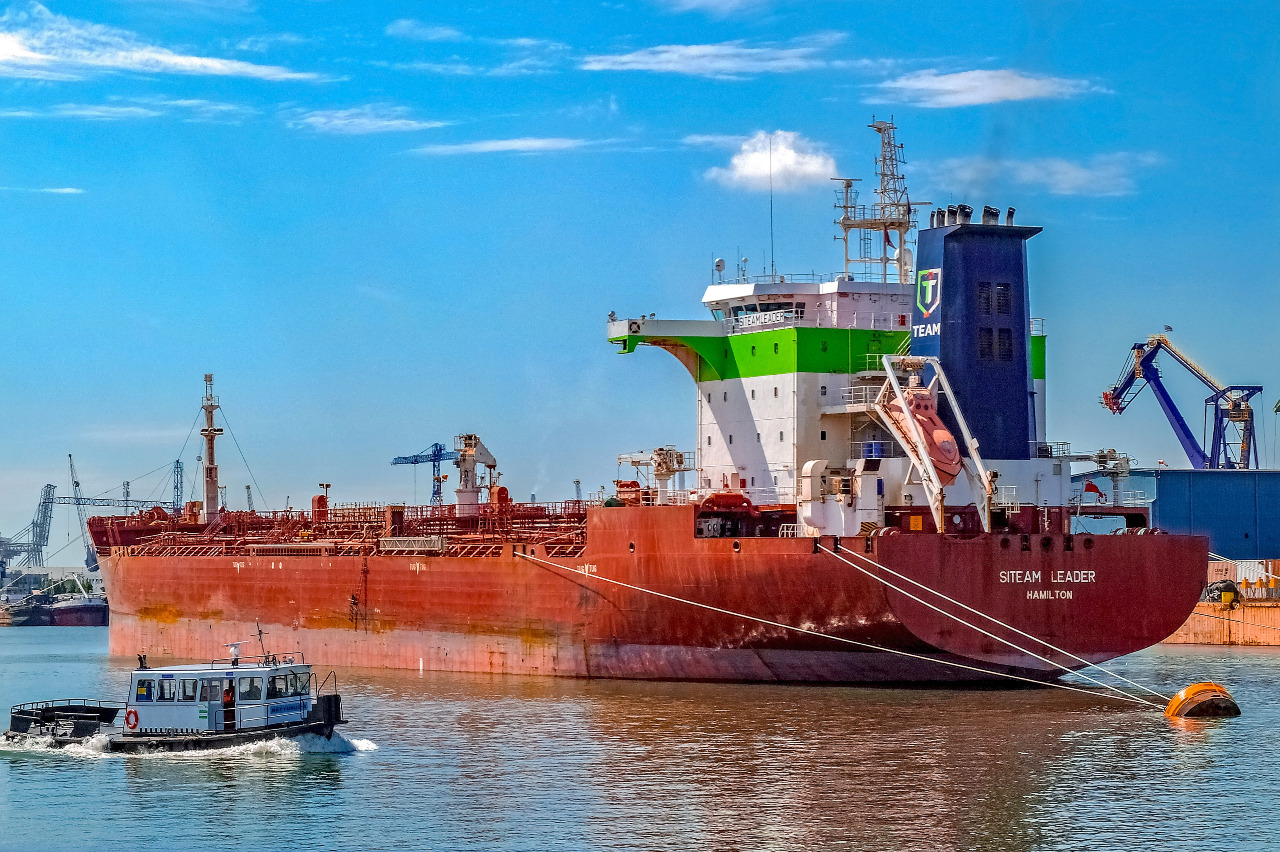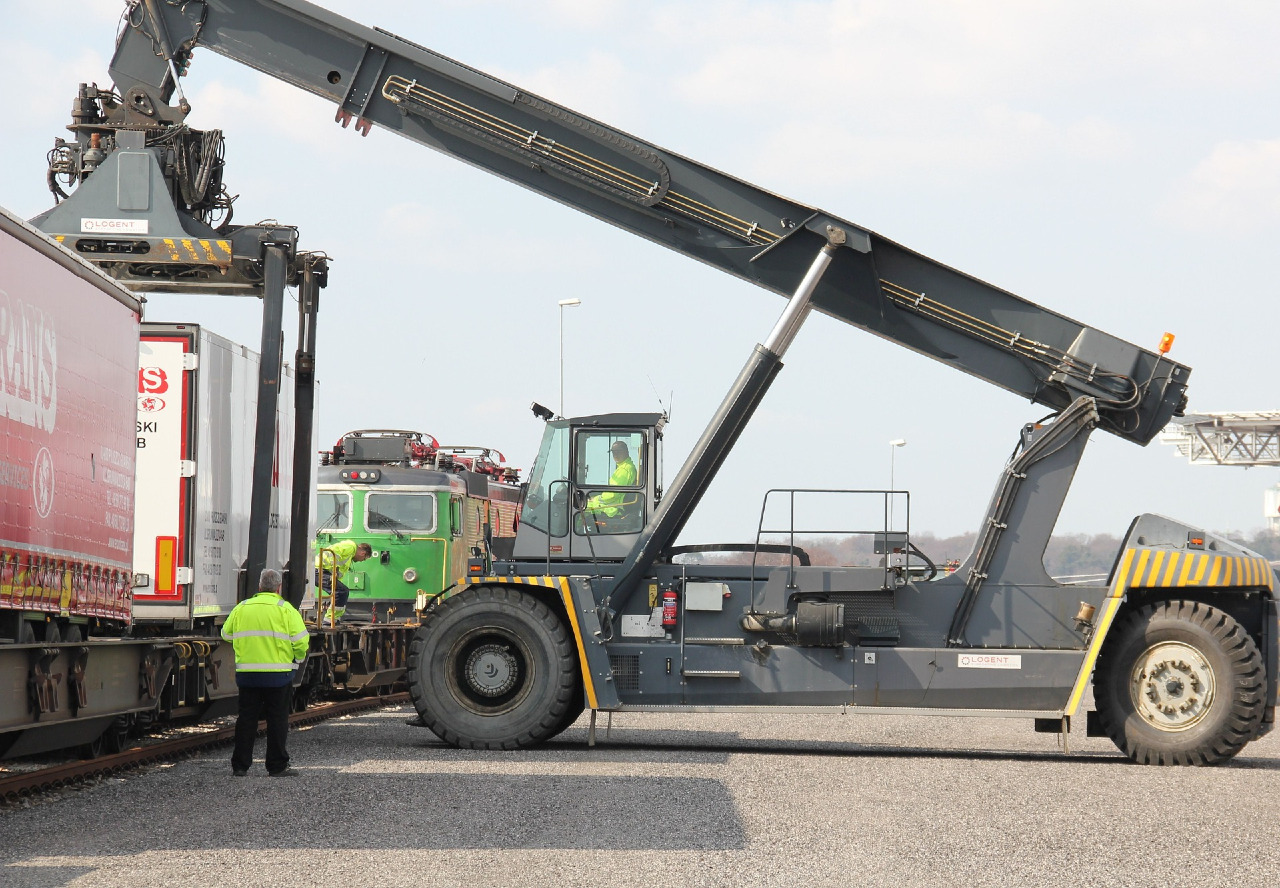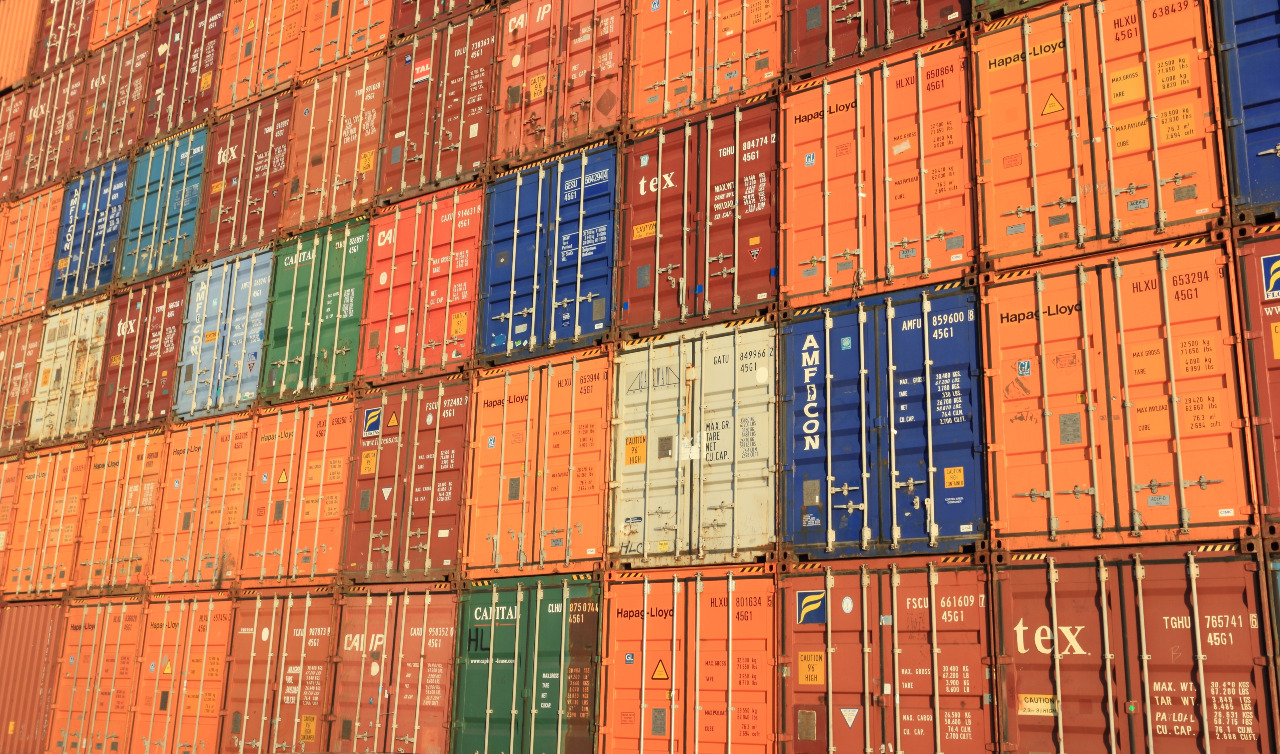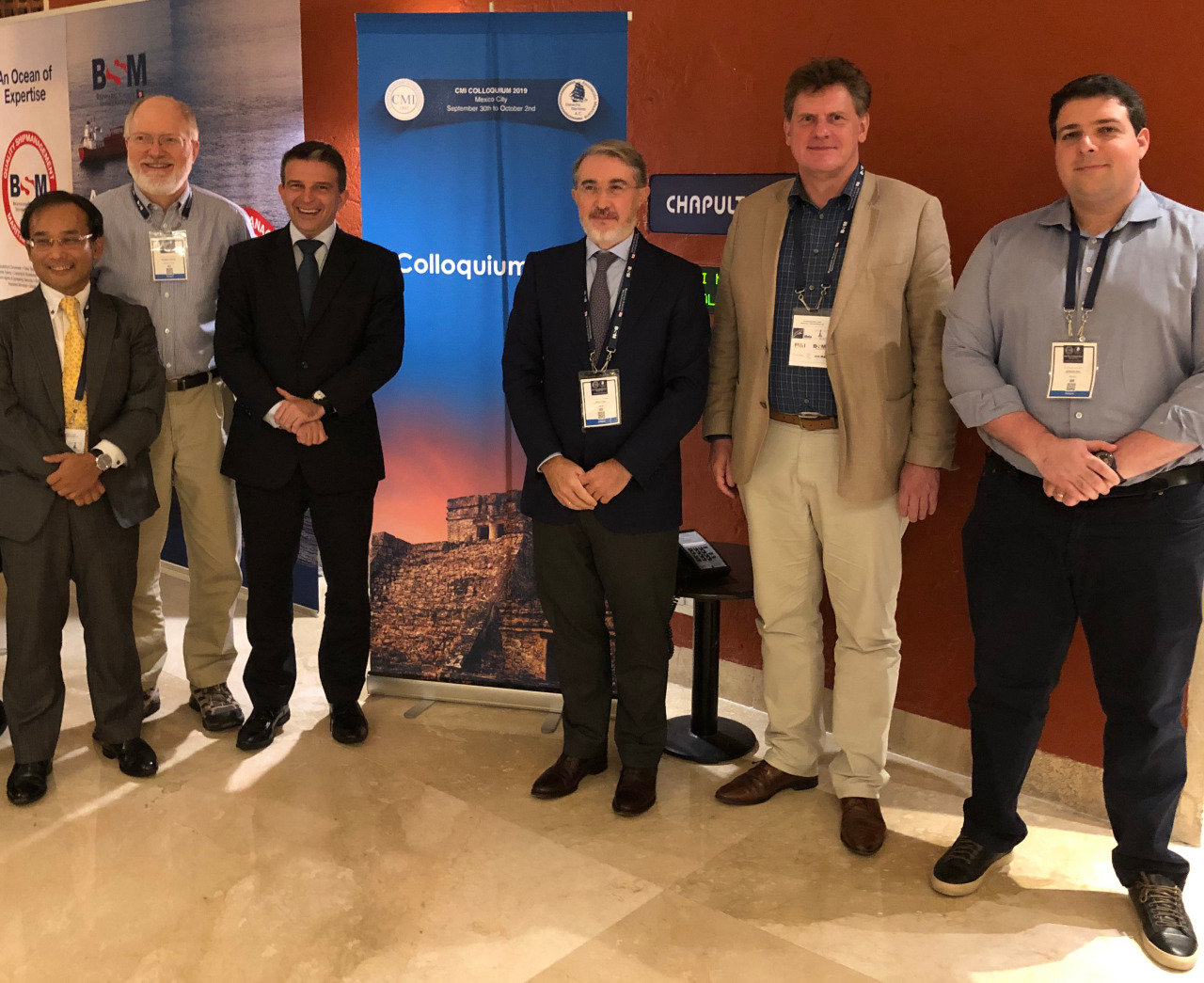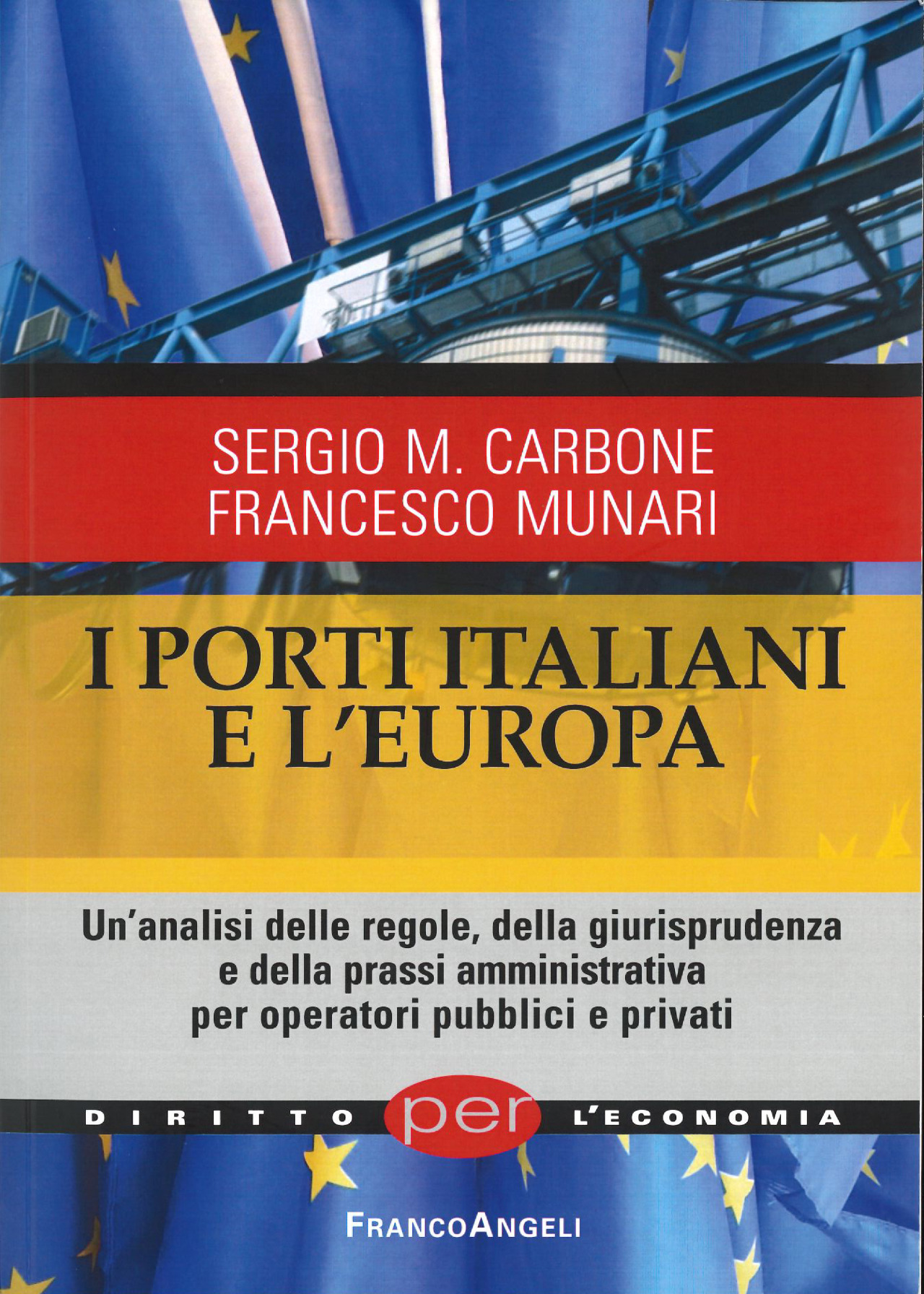|
Newsletter of Portius - International and EU Port Law Centre - January 2020
|
|
| |
|
|
|
Best wishes for a prosperous port law year! |
|
| |
|
|
|
|
|
Portius wishes you a prosperous 2020 and is pleased to bring you immediately some breaking news about port law. Together with the Maritime Institute of Ghent University, Portius is organizing four useful events. We also inform you about a series of new publications and other activities. |
|
| |
|
|
|
Save the date ! 'Port law between globalisation and deglobalisation' at the heart of prestigious ECMLR 2020 in Ghent on 10 and 11 September 2020 |
|
| |
|
|
|
|
|
On 10 and 11 September 2020, the prestigious European Colloquia on Maritime Law Research or ECMLR will for the first time be held in Belgium, at the University of Ghent, a beautiful port and art city with a centuries-old tradition. The theme of the 11th edition of the ECMLR is ‘Port law between globalisation and deglobalisation. Trade, migration, competition, pricing, liability and labour aspects of port and port terminal operations considered from an international and European perspective’. In other words, the event will focus on current issues of port law, including port-related aspects of maritime, economic, international and EU law. Increasing international uncertainty about security, trade policy and migration inevitably affects the legal rules governing the operation of ports, which are vital gateways to countries, peoples and economies. This manifests itself in a wide variety of issues, such as access to ports for foreign investors, access to ports for migrant ships, the delayed entry into force of the Rotterdam Rules which imply a new liability regime for port terminal operators, or the response of competition authorities and courts to the charging of demurrage and detention.
More specifically, the organisers aim to offer international and national perspectives on issues such as:
|
|
| |
|
|
|
|
|
-
International law on freedom of access to ports, including access to ports for foreign investors, the position of migrant ships and international embargoes;
-
Port-related charges, including port dues, terminal, pilotage, towage and mooring fees;
- Demurrage and detention in container shipping as considered by competition authorities and courts;
-
Liabilities of terminal operators, port authorities and all other port-related service providers such as VTS, pilotage, towage, mooring services, shipping agents, freight forwarders, etc., as well as liabilities of port users;
-
The organisation of port labour, more specifically the implications of recent EU and national court judgments and policies relating to the rights of port labour pool agencies;
-
Any other recent port law-related developments.
|
|
| |
|
|
|
|
|
The previous editions of ECMLR were organised by leading maritime law institutes in Athens, Bilbao, Bologna, Messina/Palermo, Oslo, Ravenna, Rotterdam, Southampton, Swansea and Torun. The Ghent colloquium is organised by the Maritime Institute of Ghent University and the Portius
Port Law Centre. It will be supported by the Belgian Maritime Law Association. This is the first time ECMLR focuses specifically on port law.
For more information about the 11th ECMLR, check out www.portius.org or please contact Professor Eric Van Hooydonk, chairman of Portius and member of the Maritime Institute, via [email protected]. Click on the links for more information about the University of Ghent, its Maritime Institute and visiting the city of Ghent.
|
|
| |
|
|
|
ECMLR 2020 on current issues of seaport law - Call for papers
|
|
| |
|
|
|
|
|
Several international authorities have already committed themselves to contribute. The organisers would like to invite additional authors to submit proposals for contributions via [email protected] and to prepare their paper before the colloquium. In the tradition of ECMLR, we particularly encourage academics from European institutes to report on their work. However, other proposals are certainly welcome. The contributions will be published in book form so that the proceedings will have a lasting value. Contributions may cover international, European and national regimes, including regulation, case law and legal doctrine and may focus on shipping law, international public law, competition law or any other relevant aspects of port-related law. International and comparative analysis is strongly encouraged. The language of the colloquium and papers is English. |
|
| |
|
|
|
ECMLR 2020 on current issues of seaport law - Call for sponsors
|
|
| |
|
|
|
|
|
The organisers of this prestigious non-profit congress offers all interested authorities, professional organisations, companies and law firms the opportunity to present themselves to an important international audience. This sponsorship is necessary to cover expenses such as travel and accommodation of invited speakers, room hire, catering, receptions and the publication of the conference book. We offer you several interesting formulas to become a unique Main Sponsor, a Platinum Sponsor, a Gold Sponsor or a Silver Sponsor. In return for a modest amount we offer, depending on the formula, prominent mention as sponsor in all communications and publications as well as at the venue, one or more delegate registrations and one or more copies of the conference book. Please check out the conference webpage or contact us via [email protected] to discuss the possibilities. For all events organised by Portius, recognition as professional training for lawyers will be requested from the Order of Flemish Bars. |
|
| |
|
|
|
Crash course on the EU Seaports Regulation at Ghent University on 13 March 2020
|
|
| |
|
|
|
|
|
The EU Seaports Regulation (‘Regulation (EU) 2017/352 of the European Parliament and of the Council of 15 February 2017 establishing a framework for the provision of port services and common rules on the financial transparency of ports’) has applied from 24 March 2019. It is the central European legislative framework for the operation of more than 300 seaports of the European Union and the European Economic Area. The instrument organises the procedures under which port service providers can gain access to the market, the transparency of public port financing, and the levying of port service charges and port infrastructure charges. It also contains provisions on matters such as social protection, user and stakeholder consultation, complaint handling and penalties. It is already clear that the Member States, authorities and port users are encountering numerous implementation and interpretation difficulties and that, as expected, the Regulation is being used in judicial disputes.
Professor Eric Van Hooydonk followed the creation of this European Ports Act from the publication of the first proposals in the Green Paper of the European Commission in 1997. As a practising port lawyer, he has been experiencing the day-to-day reality of port policy and port operations for more than thirty years. He has just published an authoritative handbook on the regulation (see below). He is therefore well placed to explain the objectives and mechanisms of the Regulation to practitioners from the port and shipping sectors and the legal profession. On 13 March 2020 he teaches a not to be missed crash course on the EU Seaports Regulation at the Maritime Institute of Ghent University. The intensive course is taught in English and the number of places is limited. For the programme and registrations, click here. You are also kindly invited to ask practical questions about the implementation of the regulation in advance, which can be discussed during the Q&A sessions. Please feel free to send your questions to [email protected].
|
|
| |
|
|
|
Book launch event on comprehensive commentary of EU Seaports Regulation in Antwerp on 12 March 2020 |
|
| |
|
|
|
|
|
The long-awaited manual The EU Seaports Regulation by Professor Eric Van Hooydonk is now published. This book of 1,307 pages provides an authoritative and comprehensive commentary on all provisions of the Regulation, taking into account its genesis, policy context and objectives, as well as the rich EU case law on the related rules of the Treaty and analogous EU legislation. An exhaustive analysis of the Travaux Préparatoires, numerous practical examples and selected references to national law make this book a must, not only for lawyers, but also for port and shipping professionals from both the public and private sectors. Check out the table of contents, sample pages and the index via this link, where you can also order the book. The book will be presented officially at an evening event at the headquarters of the Antwerp Port Authority on 12 March 2020. Mrs Annick De Ridder, Antwerp Port Chairperson, Mr José Fernandez García,
Policy Officer
for ports at the European Commission,
and Professor Eric Van Hooydonk will take the floor. You are kindly invited to register free of charge via this link. The book is also is offered to the participants in the crash course on 13 March 2020 at a special discount. |
|
| |
|
|
|
Crash course on the New Belgian Shipping Code at Ghent University on 29 April 2020
|
|
| |
|
|
|
|
|
In 2019, the Belgian Parliament adopted the Belgian Shipping Code. This is a recodification of public and private Belgian maritime and inland navigation law. The Code contains various provisions on ports, such as security. However, the main part of the provisions concerns general maritime and inland navigation law, ranging from the registration of seagoing vessels to the transport contract and collisions. The Maritime Institute of Ghent University and Portius will organise a crash course on the new Code on 29 April 2020. The course will be taught in the Dutch language. For the programme and registrations, click here. |
|
| |
|
|
|
Call on all port law researchers to participate in our new network
|
|
| |
|
|
|
|
|
Since the start of Portius in 2010, our aim has been to bring port law experts and port law organisations from all over the world into contact with each other and to inform each other and interested parties about new publications and activities. In 2020, we wish to renew and expand this informal network. On the new Portius website we reserved for each individual member of this network a special page to share profiles, contact details and information about publications. We offer this communication tool entirely free of charge. For more information, check out this page or contact Eric Van Hooydonk via [email protected]. |
|
| |
|
|
|
Cooperation with European Transport Law and the European Maritime Law Organisation
|
|
| |
|
|
|
|
|
In 2019, Eric Van Hooydonk accepted invitations to join the editorial board of the journal European Transport Law (ETL), which has been published in Antwerp since 1965 in six languages) and the Council of the London-based European Maritime Law Organisation (EMLO). At EMLO’s annual conference in Limassol (Cyprus) on 17 October 2019, Eric spoke about the legal aspects of the commercialisation of the local port. Through ETL and EMLO, Portius will continue to contribute to research and publications on European port law. |
|
| |
|
|
|
EU Court clarifies legal and fiscal status of port authorities
|
|
| |
|
|
|
|
|
On 20 September 2019, the General Court of the European Union issued a (rather predictable, yet important and fundamental) judgment on the fiscal and legal status of the Flemish seaport authorities (Case T-696/17). The case concerned Belgian tax legislation under which the profits of public port authorities, which have the status of limited companies governed by public law, were not subject to ordinary corporation tax, but to the less onerous tax on legal persons. The European Commission took the view that this special tax treatment constituted a State aid measure. The ports of Antwerp and Zeebrugge have challenged the Commission’s decision. In its judgment, the General Court dismisses the appeal of the ports in its entirety.
The Court considered that the activities of the Flemish port authorities are − at least partially − economic activities. Firstly, ports offer their users (mainly ship owners, but more generally any operator of a vessel) a general service by giving ships access to the port infrastructure in exchange for a fee which is usually called ‘port dues’. Secondly, some ports provide special services to ships, such as pilotage, hoisting, cargo handling and mooring services, also in return for a fee. Thirdly, ports provide, for a fee, certain infrastructures or land to undertakings which use these areas for their own needs or to provide vessels with some of the abovementioned special services. The fact that third undertakings use certain port areas and infrastructure to provide services to ship owners or vessels does not preclude the fact that the management activities carried out by the port authorities, in particular the renting out of those areas and infrastructure to those third undertakings, are also of an economic nature. The fact that goods and services are offered on a non-profit basis does not prevent the entity offering them on the market from being regarded as an undertaking where that offer is in competition with that of other operators who are profit-seeking. Moreover, the mere fact that the ports set prices unilaterally and under the supervision of the Regional Ports Commissioner does not mean that demand is not taken into account. The fact that an entity exercises public authority powers in relation to part of its activities does not in itself prevent it qualifying as an undertaking within the meaning of European Union competition law for the rest of its economic activities. Neither does Regulation (EU) 2017/352 of the European Parliament and of the Council of 15 February 2017 establishing a framework for the provision of port services and common rules on the financial transparency of ports allow for the conclusion that port management activities are not of an economic nature. The non-application of corporation tax to ports, which have been designated by law as a privileged category on account of their specific characteristics and those of the sector of activity to which they belong, is a priori selective as far as the economic activities of the ports are concerned.
|
|
| |
|
|
|
Three requests for a preliminary ruling relating to port labour submitted to the EU Court of Justice
|
|
| |
|
|
|
|
|
Port labour reform remains a challenge in many European Member States. The recent modernisation of the classic monopolistic pool systems of Belgium and Spain, which was introduced in the framework of European infringement procedures, yielded little or no practical result and gave rise to legal proceedings. These led to requests for a preliminary ruling to the European Court of Justice on the compatibility with the Treaties of the applicable Belgian and Spanish rules. These procedures are known under case numbers C-407/19 and C-471/19 (joined Belgian cases) and C-462/19 (Spanish case). In previous judgments, the Court clearly ruled against the continuation of exclusive rights for dock labour pools. |
|
| |
|
|
|
US Federal Maritime Commission prepares rules on demurrage and detention
|
|
| |
|
|
|
|
|
The US Federal Maritime Commission (FMC) has proposed an interpretive rule on demurrage and detention under the Shipping Act. This rule would provide the public with guidance about how the Commission assesses the reasonableness of demurrage and detention practices and regulations. The interpretive rule describes a non-exclusive list of factors the Commission may consider in evaluating claims and complaints that come before the agency. The proposed rules was submitted to a public consultation process. Commissioner Rebecca Dye explained the initiative’s background and objectives during the European Maritime Law Organisation’s latest conference in Limassol on 17 October 2019. The issue of detention and demurrage rates is also receiving increasing attention in Europe. |
|
| |
|
|
|
Port aspects of the Lex Maritima
|
|
| |
|
|
|
|
|
For some years now, Eric Van Hooydonk has led an International Working Group of the Comité Maritime International (CMI) that is attempting to write down the general principles of maritime law. This Lex Maritima - a Lex Mercatoria for maritime matters - is steadily taking shape and was last discussed during the CMI colloquium in Mexico City, which was held from 30 September to 2 October 2019. During the meeting, Eric outlined the methodology using the Maritime Law Principle which evokes the role of the pilot as an advisor to the captain. The Lex Maritima will also include other port-related principles. Since the Mexico City meeting, the text has been further elaborated and Eric aims to have a more or less complete draft ready by 2020, which can be subject to further decision-making within the CMI. The photo shows the participants of the working group meeting in Mexico City on 1 October 2019: from left to right Professor Tomotaka Fujita (Japan), Professor Michael Sturley (USA), Leven Siano (Brazil), Professor Jesús Casas (Spain), Eric Van Hooydonk and Werner Braun Rizk (Brazil). On 22 November 2019 Eric spoke about the work of the workgroup at the Fifth Maritime Law Conference in Bremen together with working group members Professor Andreas Maurer (Germany) and Professor Kerim Atamer (Turkey). |
|
| |
|
|
|
Recent books and journal articles on port law
|
|
| |
|
|
|
|
|
We would like to draw your attention to the following recent publications on port law.
In English
- Reiling, K., ‘Regulation of Seaports Through International Administrative Law?’, Zeitschrift für europäisches Umwelt- und Planungsrecht, pp. 452-461
- Van Hooydonk, E., ‘Botport law. The regulatory agenda for the transition to smart ports’, in Soyer, B. and Tettenborn, A. (Eds.), New technologies, artificial intelligence and shipping in the 21st century, Abingdon, Informa from Routledge, 2020, pp. 90-104
- Van Hooydonk, E., ‘The EU Seaports Regulation’, [2019] 4 The Journal of International Maritime Law, pp. 273-296
- Van Hooydonk, E., The EU Seaports Regulation. A commentary on Regulation (EU) 2017/352 of the European Parliament and of the Council of 15 February 2017 establishing a framework for the provision of port services and common rules on the financial transparency of ports, Antwerp, Portius Publishing, 2019, 1307 pages
- Van Hooydonk, E., ‘The fiscal regime of port authorities under EU State aid law’, [2019] European Transport Law pp. 525-526 (Case note on the General Court judgment in Case T-696/17)
- Van Hooydonk, E., ‘The environmental provisions of the EU Seaports Regulation’, [2019] Zeitschrift für europäisches Umwelt- und Planungsrecht, pp. 437-451
- Van Hooydonk, E., ‘Some considerations on the position of mooring services under the EU Seaports Regulation’, [2019] 4 Porti & Servizi Tecnico Nautici (‘Ports and Technical-Nautical Services’, i.e. the review published by the association of Italian mooring men), pp. 38-49
In Dutch
- Van Hooydonk, E., ‘De EU-Zeehavenverordening. Een beknopte inleiding’ (‘The EU Seaports Regulation. A brief introduction’), Tijdschrift Vervoer & Recht 2019, Iss. 6, pp. 174-182
In French
- Boillet, N., ‘Les infrastructures portuaires et les changements climatiques’, [2019] Droit maritime français, pp. 649-663
- Rézenthel, R., ‘L’exploitation des ports de plaisance, en tant que mission de service public à caractère industriel et commercial, est-elle soumise au régime des aides d’Etat ?’, [2019] Droit maritime français, pp. 749-760
- Van Hooydonk, E., ‘Le Règlement (UE) sur les ports maritimes - une brève introduction’, [2019] Droit maritime français, pp. 834-841 and 928-938
In German
- Van Hooydonk, E., ‘Die EU-Seehafenverordnung’ (‘The EU Seaports Regulation’), [2019] Transportrecht (forthcoming)
In Italian
- Carbone, S.M. and Munari, F., I porti italiani et l’Europa. Un'analisi delle regole, della giurisprudenza e della prassi amministrativa per operatori pubblici e privati, Milan, FrancoAngeli, 2019, 287 pages
- Carbone, S.M., '"Funzionali all'interesse della navigazione". Valorizzati caratterische e modalità di erogazione del servizio di ormeggio', [2019] 4 Porti & Servizi Tecnico Nautici, pp. 51-57
- Van Hooydonk, E., 'Alcune considerazioni sulla posizione del servizio di ormeggio nell’ambito del Regolamento Europeo sui Servizi Portuali’ (‘Some considerations on the position of mooring services under the EU Seaports Regulation’), [2019] 4 Porti & Servizi Tecnico Nautici, pp. 38-49
In Spanish
- Eguinoa de San Román, R. (Coord.) and Fernández Bozal, P. (Dir.), El Reglamento Europeo de Puertos y su impacto en el sector, Barcelona, Atelier Libros Jurídicos, 2019, 201 pages
|
|
| |
|
|
|
Subscribe and unsubscribe - Privacy policy
|
|
| |
|
|
|
|
|
You receive this newsletter as a professional relation of Portius. Your data will be managed with strict respect of the privacy legislation. Anyone can subscribe to this newsletter here free of charge. To unsubscribe, click here. If you find this newsletter interesting, it might be an idea to forward it to other interested persons, for which we thank you. |
|
| |
|
|
|
Portius is the world's first institution to specialise in the study of the international and EU law of maritime and inland ports, the gateways to global trade. Portius is based on a genuinely international and EU-inspired network of port law academics and practitioners and welcomes contributors from all countries. - E [email protected] - W www.portius.org |
|
| |
|
|
|

